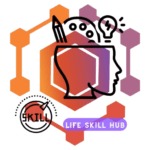Table of Contents
ToggleIn an era defined by rapid advancements, the role of education transcends traditional boundaries, becoming a catalyst for continuous learning and personal growth. Let’s explore how education facilitates knowledge acquisition and fosters an environment of lifelong learning:
Embracing Dynamic Learning Environments
Adaptive Curriculum: Educational platforms offer adaptive learning, catering to individual learning styles and pace, enhancing comprehension and retention.
Interactive Tools: Immersive technologies, gamification, and simulations enrich learning experiences, engaging students and encouraging active participation.
Empowerment Through Diverse Resources
Accessible Information: Online resources democratize access to information, providing a vast repository of knowledge for learners worldwide.
Specialized Courses: Niche courses and certifications cater to specific interests, allowing learners to explore diverse fields and deepen their expertise.
Fostering Critical Thinking and Innovation
Problem-Solving Skills: Education promotes critical thinking, encouraging students to analyze, evaluate, and innovate solutions to real-world challenges.
Creative Expression: Platforms encourage creativity, enabling learners to express themselves through projects, discussions, and collaborative endeavors.
Lifelong Learning Mindset
Continual Development: Education instills a mindset of continuous learning, emphasizing that learning extends beyond formal institutions and throughout life.
Professional Growth: Lifelong learners adapt to changing landscapes, enhancing career prospects and staying abreast of industry advancements.
Conclusion: The Transformative Power of Education
Education serves as a beacon, guiding individuals on a journey of discovery, empowerment, and growth. It transcends conventional boundaries, fostering a culture of curiosity, resilience, and innovation, shaping individuals into lifelong learners ready to navigate the complexities of an ever-evolving world.
